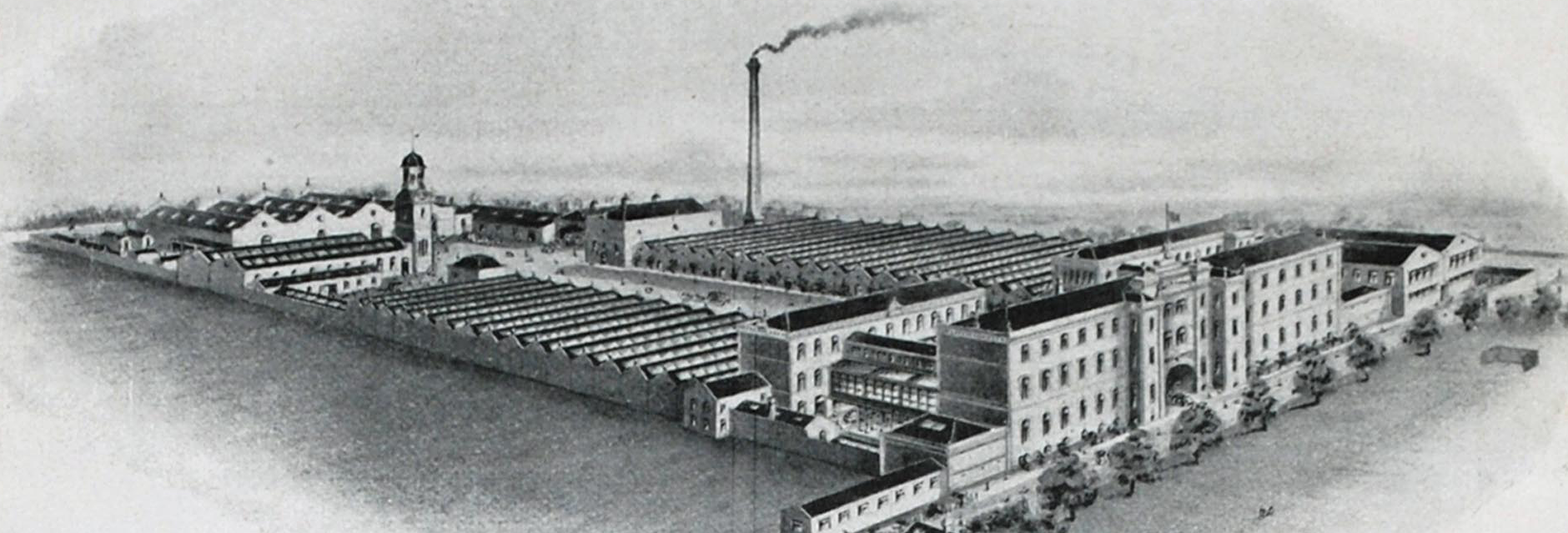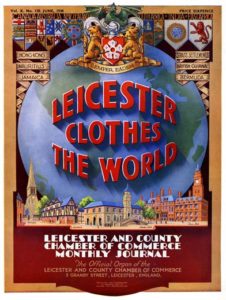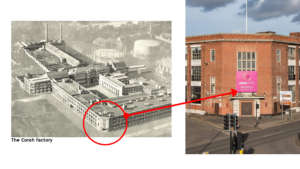As a Leicester resident today, it can often seem that there is little special about a city which, in the minds of many, is associated with Walkers Crisps, Gok Wan, and little else. However, if we look just a century back in time, Leicester had a proud and thriving industry in textile and garment manufacturing that seems to have been largely forgotten by the public.
Leicester was a hub for the production of a good number of the clothes on the backs of people in Britain, but also around the world. Remarkably, it even became the second wealthiest city in Europe thanks to its booming industry in clothing and textiles.
From the 19th century to the 20th century, the city was home to a number of powerful textile companies. Some of them saw themselves evolve from small companies to global brands, with Leicester as their home.
Particularly worth mentioning is N. Corah & Sons, one of the Leicester companies with the greatest impacts on the textile industry. Anyone who lives in Leicester has probably seen Corah’s distinctive abandoned factory, but given it little thought while driving by – it now serves as a banqueting suite.
However, this factory, originally called the St Margaret’s Works, left its mark on the world. The company it housed was founded by Nathaniel Corah in 1815, and Corah’s firm grew from humble origins, selling stockings locally but eventually developing a special relationship with Marks and Spencers, which created a special “St Michael” label inspired by Corah’s St Margaret’s brand, the latter of which was a pioneering label that was among the first to ever be trademarked in Britain.
At one point in the 1960s, Corah had more than 6000 employees, and became the largest producer of knitwear in Europe.
N. Corah & Sons also made a huge contribution to the British war effort from 1939 to 1945. 70% of the textiles that the factory produced went to the war.
Nevertheless, due to a series of events including the crippling recessions of the 1970s and being acquired by another company, Corah was eventually shut down in the 1990s. But N. Corah and Sons is just one example of a Leicester textiles company that was successful; indeed, there were many more.
Even though Corah couldn’t survive the recessions, it stands to reason that there might be companies that did not fold and have continued to thrive in Leicester. Sadly, nearly the opposite is true. So why are there so few large textile companies in Leicester?
Leicester textile industry was dealt a fatal blow by outsourcing of labour to places like China and Bangladesh where the minimum wage is significantly lower, and companies face fewer workplace restrictions. This means that global businesses nearly always manufacture garments in far-flung places rather than in Britain, because lower clothes production costs increases the profit margin.
Nevertheless, if we are talking nationally, the history of Leicester with textiles has left a prominent mark on the city. If you see a piece of clothing which says “Made in England”, the chances are that it was made in Leicester. If you know where to look in Leicester, one can still find a successful, albeit diminished, textiles industry.
My city’s history had an impact on the whole world during the 19th and 20th centuries that should not be forgotten. It is something to be proud of. It is something that a lot of people do not know about Leicester, even if they live there.
It is unlikely that Leicester will ever mass-produce clothing like it did in its heyday, but I believe that the city still has the potential to have a thriving garment industry that produces high-quality apparel in an ethical way for discerning customers.
I’m not promising that Latorio will set off a sartorial renaissance in Leicester, but I am proud to say that my company plays a positive role in a local clothing industry with roots going back a century or more. So, let’s learn from the past and look ahead to a future filled with exciting possibilities for change, positive development, and customer satisfaction.
Please share this blog,
Nathan Mistry



It would be good for the economy and regional growth for the textiles industry to expand in Leicester, where it once was dominate force. It’s a shame that the cost of manufacturing in Leicester or anywhere in the UK would force production outside as affordable clothing is what sells.